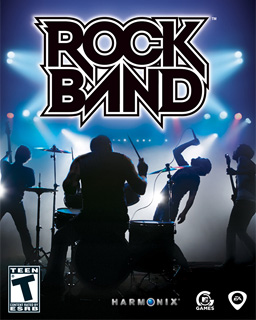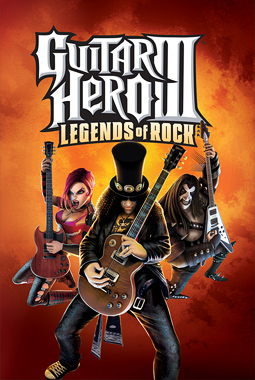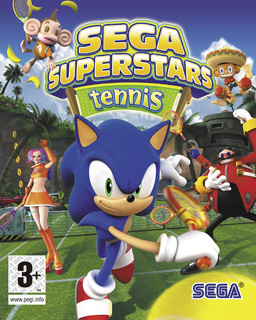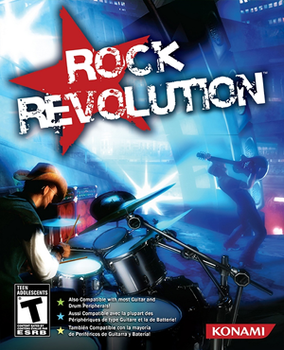A video game accessory is a distinct piece of hardware that is required to use a video game console, or one that enriches the video game's play experience. Essentially, video game accessories are everything except the console itself, such as controllers, memory, power adapters (AC), and audio/visual cables. Most video game consoles come with the accessories required to play games out of the box : one A/V cable, one AC cable, and a controller. Memory is usually the most required accessory outside of these, as game data cannot be saved to compact discs. The companies that manufacture video game consoles also make these accessories for replacement purposes as well as improving the overall experience. There is an entire industry of companies that create accessories for consoles as well, called third-party companies. The prices are often lower than those made by the maker of the console (first-party). This is usually achieved by avoiding licensing or using cheaper materials. For the mobile systems like the PlayStation Portable and Game Boy iterations, there are many accessories to make them more usable in mobile environments, such as mobile chargers, lighting to improve visibility, and cases to both protect and help organize the collection of system peripherals to. Newer accessories include many home-made things like mod chips to bypass manufacturing protection or homemade software.

A guitar controller is a video game controller designed to simulate the playing of the guitar, a string musical instrument. Guitar controllers are often used for music games such as UmJammer Lammy: NOW!, GuitarFreaks, Guitar Hero, and the Rock Band series. The controllers are played by holding down a colored fret button that matches a colored, on-screen note, while pressing the strum bar as the note passes through the target. The controllers also feature a whammy bar, which is used to bend notes and collect each game's equivalent of bonus energy. Different games and models of controllers have introduced additional features, such as effects switches, additional fret buttons, and fret touch pads. The fret buttons are colored usually in the order of green, red, yellow, blue, and orange.
The 2000s was the fourth decade of the video game industry. It was a decade that was primarily dominated by Sony, Nintendo, newcomer Microsoft, and their respective systems. Sega, being Nintendo's main rival in the 1980s and 1990s, left the console market in 2002 in favor of returning to third-party development, as they once were. Overall the decade saw the last of the low resolution three-dimensional polygons of the 1990s with the emergence of high definition games, and often focused on developing immersive and interactive environments, implementing realistic physics, and improving artificial intelligence. The sixth and seventh generation of video game consoles went on sale, including the PlayStation 2, Wii, Xbox, PlayStation 3, Game Boy Advance and Xbox 360. Notable games released in the 2000s included Half-Life 2, Wii Sports, Grand Theft Auto III, The Sims, Ikaruga, Tony Hawk's Pro Skater 3, Star Wars: Knights of the Old Republic, Batman: Arkham Asylum, Super Mario Galaxy, the Halo trilogy, and Call of Duty 4: Modern Warfare.

Rock Band is a music video game developed by Harmonix, published by MTV Games and distributed by Electronic Arts. It is the first title in the Rock Band series. The Xbox 360 and PlayStation 3 versions were released in North America on November 20, 2007, while the PlayStation 2 version was released on December 18, 2007 and the Wii version on June 22, 2008. Harmonix previously developed the first two games in the Guitar Hero series, which popularized gameplay of rock music with guitar-shaped controllers. After development of the series was shifted to Neversoft, Harmonix conceived Rock Band as a new title that would offer multi-instrument gameplay.
Nyko is an American manufacturer of third-party accessories for various gaming consoles.
The seventh generation of home video game consoles began on November 22, 2005, with the release of Microsoft's Xbox 360 home console. This was followed by the release of Sony's PlayStation 3 on November 17, 2006, and Nintendo's Wii on November 19, 2006. Each new console introduced new technologies. The Xbox 360 offered games rendered natively at high-definition video (HD) resolutions, the PlayStation 3 offered HD movie playback via a built-in 3D Blu-ray Disc player, and the Wii focused on integrating controllers with movement sensors as well as joysticks. Some Wii controllers could be moved about to control in-game actions, which enabled players to simulate real-world actions through movement during gameplay. By this generation, video game consoles had become an important part of the global IT infrastructure; it is estimated that video game consoles represented 25% of the world's general-purpose computational power in 2007.

Guitar Hero III: Legends of Rock is a music rhythm video game developed by Neversoft and published by Activision. It is the third main installment in the Guitar Hero series, following Guitar Hero II. It is the first game in the series to be developed by Neversoft after Activision's acquisition of RedOctane and MTV Games' purchase of Harmonix, the previous development studio for the series. The game was released worldwide for the PlayStation 2, PlayStation 3, Wii and Xbox 360 in October 2007, with Budcat Creations assisting Neversoft on developing the PlayStation 2 port and Vicarious Visions solely developing on the Wii port respectively. Aspyr published the Microsoft Windows and Mac OS X versions of the game, releasing them later in 2007.

Guitar Hero World Tour is a music rhythm video game developed by Neversoft and published by Activision. It is the fourth main installment in the Guitar Hero series. The game was launched in North America in October 2008 for the PlayStation 2, PlayStation 3, Wii, and Xbox 360 consoles, and a month later for Europe and Australia. A version of World Tour for Microsoft Windows and Mac OS X was later released by Aspyr.

Sega Superstars Tennis is a sports video game developed by Sumo Digital and published by Sega. It is the second title in the Sega All-Stars series, preceded by Sega Superstars (2005), and crosses over characters, locations, and soundtracks from several Sega franchises, including Sonic the Hedgehog, Space Channel 5, and Super Monkey Ball.

Rock Revolution is a music video game developed by Zoë Mode and HB Studios and published by Konami. The game was released on 15 October 2008 for the Nintendo DS, PlayStation 3, Wii and Xbox 360. As with similar titles, the game uses various controllers to simulate the performance of rock music, primarily using guitar and drum controllers on its Xbox 360 and PlayStation 3 versions.
Hasbro Family Game Night is a series of video games that adapt board games manufactured by Hasbro.

Rock Band 2 is a 2008 music video game developed by Harmonix, published by MTV Games and distributed by Electronic Arts. It is the sequel to Rock Band and is the second title in the series. The game allows up to four players to simulate the performance of popular songs by playing with controllers modeled after musical instruments. Players can play the lead guitar, bass guitar, and drums parts to songs with "instrument controllers", as well as sing through a USB microphone. Players are scored on their ability to match scrolling musical "notes" while playing instruments, or by their ability to match the singer's pitch on vocals.

The Nyko Kama is a third-party Nunchuk accessory created for the Wii video game console by Nyko, available in wireless or wired versions. In contrast to Nintendo's device, the controller takes its name from the traditional Japanese kama; a stealthy, curved weapon. Like the original Nunchuk, the Kama features an analog control stick, and "Z" and "C" buttons. With the use of 2 AAA batteries and an adapter dongle that plugs into the Wii Remote's expansion port, the wireless Kama is able to connect wirelessly. The wired version instead features a rumble motor, which allows it to offer force feedback when used with Nyko's Wand Wii Remote alternative.
Since the release of the Nintendo Wii, many aesthetic, ergonomic and functional accessories have been developed by third parties for the console’s controller, the Wii Remote.

No More Heroes: Heroes' Paradise is an action-adventure hack and slash video game developed by feelplus. The game is an enhanced port of the 2007 Wii video game No More Heroes, originally developed by Grasshopper Manufacture and directed by Goichi Suda.

Rock of the Dead is a music video game. It was developed by Epicenter Studios and distributed by Conspiracy Entertainment and UFO Interactive Games. The game was released in 2010 for iOS, PlayStation 3, and Xbox 360.

No More Heroes is an action-adventure hack and slash video game developed by Grasshopper Manufacture for the Wii. It was released by Marvelous Entertainment in Japan in 2007, Ubisoft in North America and Rising Star Games in PAL territories in 2008. The game was directed, designed, and written by Goichi Suda, also known by his nickname Suda51. The game follows Travis Touchdown, an otaku who wins a beam katana in an auction, from which he inadvertently becomes involved in the United Assassins Association and forced to kill assassins higher in rank to prevent other assassins from targeting him.
The eighth generation of video game consoles began in 2012, and consists of four home video game consoles: the Wii U released in 2012, the PlayStation 4 family in 2013, the Xbox One family in 2013, and the Nintendo Switch family in 2017.
Rhythm game accessories are often required to play rhythm games available for various consoles, such as the PlayStation 2, PlayStation 3, Wii, and Xbox 360. These include dance pads, guitar controllers, drum controllers, microphones and turntable controllers. With the exception of microphones, these controllers can generally be used to control any game, but have limited inputs, making them impractical for most games.









